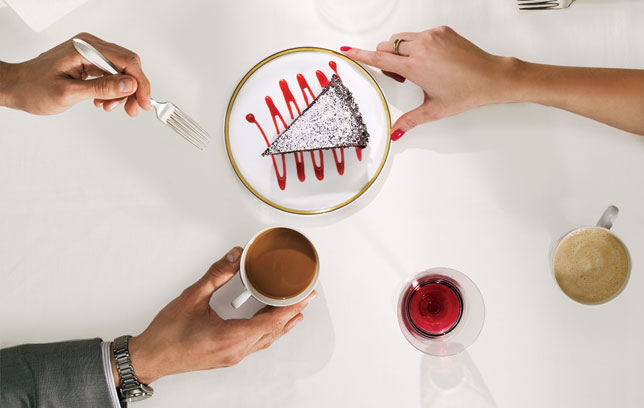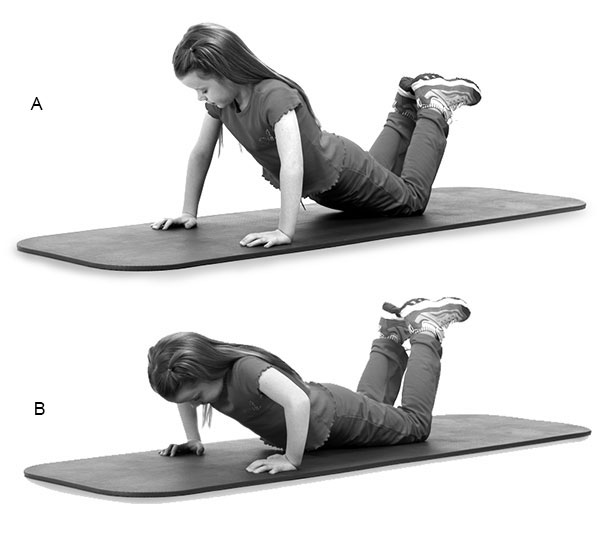Weight Watchers for Men: Mens Health
SHOW ME A GUY WHO'S TALKING ABOUT DIETING and I'll show you someone who is highly likely to be in a twisted state of discomfort. The women I know talk about weight loss rather easily. It's their shared goal. But men? Dropping pounds is a topic most men have been willing to discuss since . . . well, never.
I was one of those men: Overweight, and uncomfortable with both the weight and the subject of weight. But then I took a job at Weight Watchers, the temple of weight reduction for women. And guess what? The plan worked for me too. And for Charles Barkley. (Read about Barkley's 43-pound weight loss here.) So now both of us are talking about it.
Let's put the problem into perspective: Men in this country are more likely to be overweight or obese than women are; yet we are half as likely to do anything about it. Maybe it's a motivation problem. Women have browbeaten themselves for years—assisted by their friends, their parents, the fashion industry, magazines, TV, and their boyfriends and husbands—to appear a particular way.
Many men, by contrast, still live in a state of denial about the impact of their weight on their health. And any number of guys—me, for example—get their oversized boxers in a twist when they discover that their body mass index, or BMI, classifies them as overweight or obese. (I was 6'3" and 242 pounds, and I wasn't pleased. Neither was my doctor.) Their first reaction is to condemn the BMI system the same way some people deny global warming: They call it an irritating fantasy dreamed up by science people to make the rest of us as miserable as they are. Yet if we simply look at the health-risk factors associated with high BMI numbers, it's pretty clear that men start to run into statistical trouble when their BMIs nudge past 25. It's difficult for a lot of guys to face the potential trouble—heart disease, cancer, type 2 diabetes, impotence—that lurks beyond that threshold.
But health wasn't my only motivator. Not by a long shot. When I took my job with Weight Watchers in 2000, I saw it as a great opportunity; secretly, though, I was also looking forward to a possible fix for my hidden (semi-hidden, anyway), vexing problem. I wanted Weight Watchers to make me look good naked.
TMI? My apologies for oversharing. But vanity is a useful secret X factor for plenty of people. Maybe you want to look better naked too? Your secret is safe with me. Still, that desire to look good naked is often counterbalanced—and maybe overwhelmed—by wanting to eat like a man. Consider the cultural icons that define manly eating.
Fred Flintstone: I'll need to ask the nutritionists at Weight Watchers to calculate the caloric value of brontosaurus ribs. But really, anything large enough to tip your car over can't be a proper portion.
Henry VIII: He was a big eater and proud of it. And he had lots of wives, which implies another big appetite.
Dagwood Bumstead: "Which reminds me, is it lunchtime yet?
John "Bluto" Blutarsky, from National Lampoon's Animal House: Food fight!
The Mad Men guys: They're always eating steak and slurping cocktails, but they never gain weight. That's a trick you see only on TV.
And it's not just fictional men who set bad examples. Witness this fascinating experiment conducted by Brian Wansink, Ph.D., a food psychologist at Cornell University. Wansink makes a living tricking his study participants into eating vast quantities of food. (Really, it's not that hard. Most of us are voluntary overindulgers.) In one experiment, he and his team found that women ate less popcorn when they paid attention to how much they were eating. Makes sense, right? But in the same study, men who paid attention to their quantities ate more.
Grill off your gut with BBQ chicken, bacon cheeseburgers and hot wings!
I have a theory about what's at play here. We've all heard that women work out and dress nicely to impress other women, not the men in their lives. Is it possible that we men clean our plates in an effort to impress one another? Is this the food version of antler wars?
For ages, it seems, women have been dealing with body-image issues; this has all sorts of impact on their attitudes toward weight and weight loss. Men are vulnerable to the same thing: If rock-hard abs are the sole definition of weight-loss success, we are all doomed to a life of abject misery. We deserve better than that.
So what about men and their body images? Research shows that 26 percent of people who are trying to lose weight are doing it for looks and 39 percent are doing it for health. Suffice it to say that vanity plays a big part in the mix. Men are somewhat more likely to cite health as a driver behind their weight-loss efforts, but not by the margin you might think.
About a year ago I saw an article about male mannequins in an issue of New York magazine. A British company called Rootstein caused a bit of a stir recently with its launch of a new line of male mannequins dubbed Hommes Nouveau. The dummies are crazy skinny. How skinny? A brief history of Rootstein's mannequin sizes makes the madness clear.
- 1967: chest 42", waist 33"
- 1983: chest 41", waist 31"
- 1994: chest 38", waist 28"
- 2010: chest 35", waist 27"
Really? A 27-inch waist for a man? Now let's pay a visit to the real world, shall we? The Centers for Disease Control and Prevention's handy National Health and Nutrition Examination Survey has distribution data for male waist sizes. Here are a few fun facts.
- Average adult male waist circumference, 1988-1994: 37.5"
- Average adult male waist circumference, 2003-2006: 39.7"
- Percentage of adult men in the 2003-2006 survey with a 31" or smaller waist: 5 percent
Clearly there's a disconnect between the male body you see in a department store window and the adult male body looking at that window from the street. It's not hard to imagine how this makes life more difficult for the average guy who's dealing with excess weight.
So what role did vanity play in my own weight loss? My official reasons for addressing my excess weight were health concerns. But I also had to see myself in the shower and in the mirror without the benefit of the camouflaging clothing that filled my closet. That cruel thing women do when they stand at the mirror to critique their bodies? I did that too. It's a crummy way to start the morning.
So if it made me feel bad, why did I do it? Because it was a big-time motivator. It's not a great look. I guess that makes me shallow, but honesty is useful here. Also, being out of shape didn't make a great statement about me as a person. It was evidence of a lack of discipline and maybe a little laziness. I was embarrassed by this state of affairs.
These are the "fashion" (or style-free) choices I used to make when I was heavier: pleated khakis and baggy jeans. Big, billowing suits. Heavy sweaters. It was the fashion equivalent of wearing a refrigerator box. Because my clothes were big and baggy, I rationalized, wasn't there at least some possibility that a skinny guy was on the inside? As I lost the pounds, I feared wardrobe malfunctions, but I enjoyed creating new belt notches to fight them.
On an emotional level, the transformation to Lean Dave rocked the house. It is hard to express how happy I was when I was finally able to fit comfortably into 34-inch-waist pants after years of squeezing into 38s. It was a party in my mind the first time the sales guy at my favorite men's fashion emporium directed me toward styles suitable for, as he put it, "trim men." Hey, that's me! It was shameless salesmanship on his part, and I completely fell for it. He could have sold me anything that day, and he probably did.
I have now replaced my entire wardrobe, head to toe, and enjoyed every minute of it. For a fat guy, shopping is about deceit and covering up. As a trim guy, I'm showing off. It doesn't feel good to face that fact, but it does feel good to have the body that supports my new vanity.
What does all this have to do with maintaining my weight? Everything! All my stuff fits me well now, but a 10-pound weight gain would make me look like a stuffed sausage. Now that Dave is a bit of a dandy, outfitting him in a bratwurst costume is just not acceptable.
Adapted from Weight Loss Boss: How to Finally Win at Losing. Buy it at the Web-only rate at weightlossbossbook.com/mh.
-
9 Sneaky Ways to Eat Less
Eating too fast is making your waistline expand, suggest two new studi
-
Weight Loss: Abs Diet Pizza Recipes
License to Kielbasa Powerfoods: 3 3 tablespoons reduced-fat ricot
-
The TRUTH About Energy Drinks
With over 600 options on the market, ‘Energy Drinks’ are certainly her
-
10 (Painless) Ways to Upgrade Your Diet
Lower Your Blood Pressure and Cholesterol How: Eat shiitakes and
-
Eat the Abs Diet perfect snack for weight loss
Tired of blowing your diet? Dont skip your bedtime snack. Saint Louis
-
Diet Strategies: Lose 20 Pounds
1. Because you whine that you need to. Have you ever been wrong a
- DON'T MISS
- Weight Loss: Abs Diet Side Dish Recipes
- Achieve weight loss with the Abs Diet and whey protein powder
- Abs Diet Weight Loss Success Story
- Weight Loss: Abs Diet Enchiladas Recipe
- Belly Off! 2008: More Meals:
- Abs Diet: Weight-Free Total-Body Workout
- Eating Speed and Obesity
- The Worlds Best Vegetarian Protein Sources
- How to Buy Healthy Food
- Rewire Your Brain




